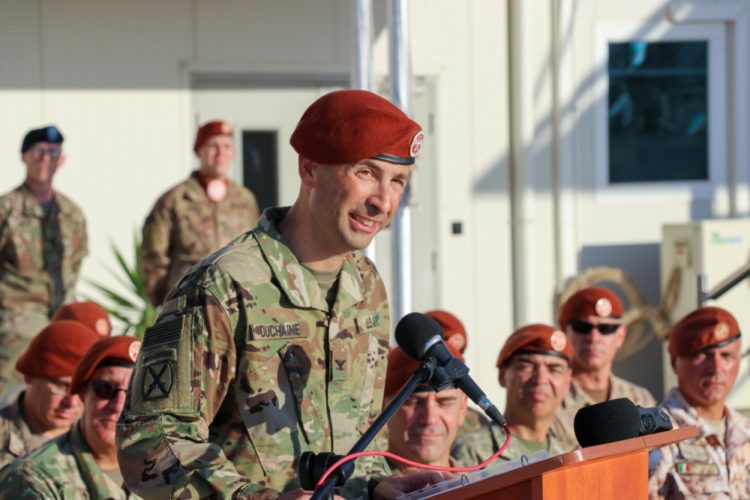For the past several months, the United States military has been looking at cutting troop levels in Africa, South America, and other places. This is in an effort to beef up the conventional forces to face the potential threats of the near-peer militaries of China and Russia in a conventional war that will never happen.
The strategy of removing troops from Africa and South America makes no sense since both China and Russia are actively trying to increase their footprint in both places. On top of that, the current doctrine of both China and Russia is to avoid a conventional war with the United States. In an interview we did with Col. Stu Bradin, former SOCOM Chief of Staff, he said, both nations will avoid conventional conflict at all costs: “They’re going to win in the competition phase, they’re going to use cyber, SOF, intelligence operations. Their doctrine says they will interfere with elections…” But that is an argument for another time and place.
The Pentagon, however, is looking to also cut some redundant task forces and missions that are no longer valid. And that is a good and a needed thing, given the current state of the military budget.
Secretary of Defense Mark Esperspoke spoke with Congressmen on Wednesday. He said that seldom-used crisis response forces and several outdated mission tasks across the combatant commands were under review.
And a big one to review is the Multinational Force and Observers (MFO) mission, through which two battalions of U.S. troops have been conducting peacekeeping operations between Egypt and Israel in the Sinai since 1981.
After the Camp David accords of 1978 signed by Israeli Prime Minister Menachem Begin and Egyptian President Anwar Sadat that were sponsored by President Carter, the Israelis agreed to withdraw from the Sinai. The peace treaty signed by the two countries in March of 1979 called for the presence of international peacekeepers from the U.N. to ensure that both Israel and Egypt obeyed the provisions regarding military build-up along the border.
The U.N. however, folded in May of 1981 when the President of the U.N. Security Council indicated that the U.N. would not provide the force due to the threat of a veto of the motion by the USSR at the request of Syria.
So, later in 1981, Israel, Egypt and the United States opened talks to provide peacekeeping forces outside of the U.N. to keep the peace in the Sinai. That’s where the MFO mission was born.
The MFO is headquartered in Rome with offices in both Tel Aviv and Cairo. There have been three infantry battalions in the Sinai with one each from Fiji, Colombia, and the United States. The U.S. also has a deployed support battalion, a medical company, an EOD detachment, and an Observer contingent whose personnel are entirely U.S. civilians. The observers are either from the U.S. State Department or retired U.S. military personnel.
The Sinai mission was needed and provided a very necessary deterrent to stop the bloodshed in the region when it first came into being. But it is no longer needed, especially at its current size of about 700 soldiers. Anachronistic deployments like the MFO are a burden to the troops, and to the American taxpayers, as they are expensive and the money can be spent better elsewhere.
Secretary Esper would be well-served to cut the number of MFO troops. Egypt and Israel have been getting along much better for the past 40 years. The peacekeepers there have accomplished the mission of bringing peace to the Sinai and their footprint can easily be reduced or even eliminated.
Already have an account? Sign In
Two ways to continue to read this article.
Subscribe
$1.99
every 4 weeks
- Unlimited access to all articles
- Support independent journalism
- Ad-free reading experience
Subscribe Now
Recurring Monthly. Cancel Anytime.










COMMENTS